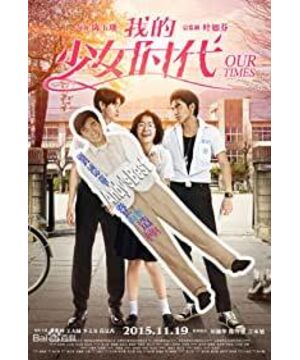It is said that the two male protagonists are both redeemed, from poor students to good students, but the quality is different, one is a poor student from the beginning, and the other is a poor student because of so many tragic pasts. I still like the first way of being disciplined. To the end, Ke Jingteng is still a free spirit. On the contrary, Xu Taiyu still has some traces of deliberate shaping. As for the hard work at the beginning, to the final resignation and breaking up, it is not connected with the middle part. How can the so-called juvenile dream ever have a life dream? It's all about love.
Elementary school students, junior high school students, high school students, and college students all have stories to tell, but there are no western movies that collide with the ideas in universities, such as Francis Ha, which I think is still a little too naive. At the end of the day, I still have hope for the tragic youth films in the mainland. Although it is too deliberate to try to create tragic situations with abortion, farewell, etc., I believe that there will eventually be a youth film similar to Farewell My Concubine, to commemorate our innocence. Youth in place. In the double entanglement of love and life, in the confrontation between educational power and life vitality, in the collision between small town youth and world citizens, a baptism of life is achieved!
Youth films can't be seen as youth, but they must be seen as adults in order to see them thoroughly. There are too many memories of youth and recognition of the good times of youth in the movie, without any serious adult world intervention, which made me read her memories, which is a pure and empty beauty. School authorities and teachers are stereotyped as inhumane authorities, while their true side is not revealed. The teacher-student relationship is always shaped like this, is it really good?
View more about Our Times reviews











